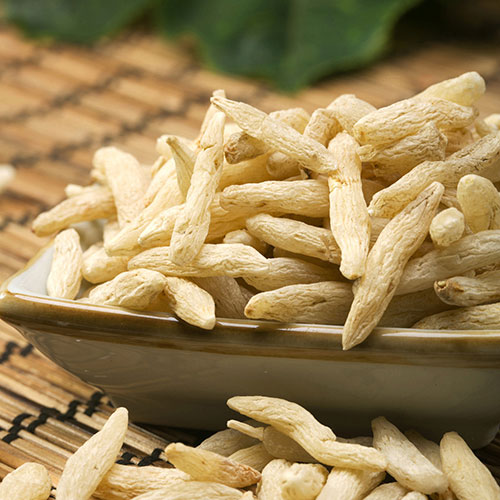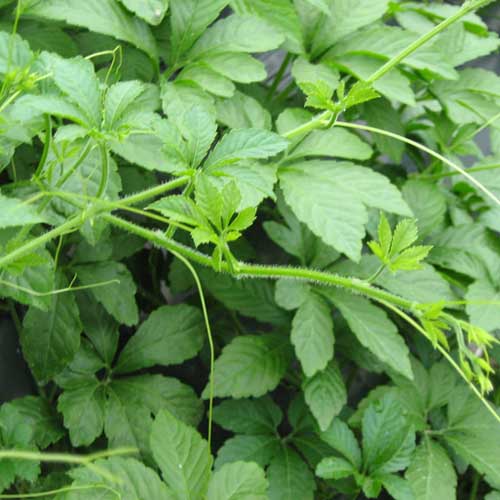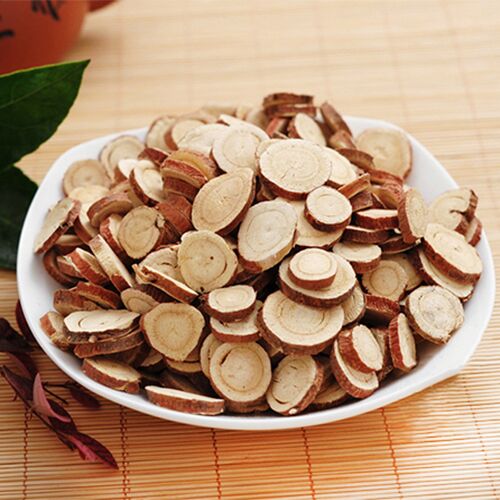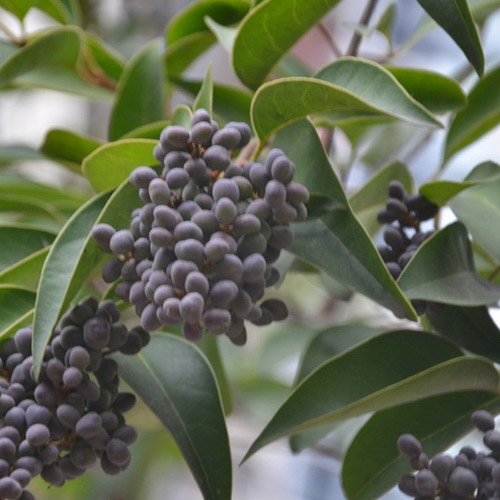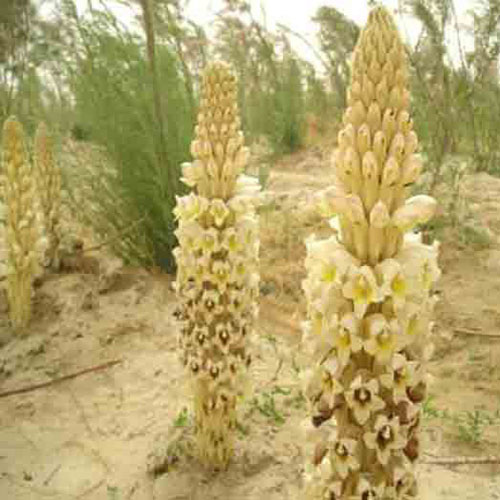- Chinese Name Mai Men Dong 麦门冬
- Latin Name Ophiopogon japonicus (Thunb.) Ker-Gawl.
- Other Names Radix Ophiopogonis, Tuber Ophiopogonis, Ophiopogon Tuber, Creeping Lily-Turf Root, Dwarf Lily-Turf Root. Monkey Grass, Mondo Grass
- Used Part Root
- Specification Powdered Extract
Ophiopogon Root Extract Powder
Description
Ophiopogon Root (Mai Men Dong) has been used in traditional Chinese medicine for centuries to influence the heart, the lungs and the stomach.
Ophiopogon Root was first recorded in the “Shen Nong’s Herbal Classic”, the oldest and well-kept ancient pharmacology book found in China by far. Also known as “the elixir”, it has long been regarded as one of top-grade tonics.
Ophiopogon Root contain a variety of steroidal saponins, carotenoids, mucilage, sugars, stigmasterol, and other ingredients. Pharmacological experiments show that it can increase white blood cell counts, extend the lifespan of antibodies, improve immune function and DNA synthesis rate, and promote the production of antibody, complement, interferon, lysozyme, and other immune substances. In addition, it is also found with ability to improve myocardial contractility and protect myocardial cells. As a result, it becomes one of main ingredient in Shengmai powders, which, to a certain extent, can help to activate and restore the pulse.
In traditional Chinese medicine, Ophiopogon is believed to moisten the lungs and nourish yin; strengthen the stomach; clear away heat in the heart; and moisten the bowels to relieve constipation. It is also believed by some to be a very powerful shen tonic. Put it in the words from Ben Cao Gang Mu (Compendium of Materia Medica) – long term use of ophiopogon tuber can help people become healthier, lighter in weight, forever young, and full all the time.
TCM Tradition
Taste & Property Sweet, Slightly Bitter, Slightly Cold
Organ Meridians Heart, Lung, Stomach
TCM Functions
• Moistens the Lungs, nourishes Yin and stops cough
– Lung Yin Deficiency with a hacking, dry cough or a cough with thick, difficult to expectorate sputum, or hemoptysis
– Pathogenic Warm-Dryness
– Dryness that has transformed into Fire
• Nourishes Stomach Yin and generates Fluids
– Stomach Yin Deficiency with dry mouth and tongue
• Moistens the Intestines
– Constipation, dry mouth and irritability as a result of febrile disease or Yin Deficiency
• Clears the Heart and eliminates irritability
– Ying Stage Heat with fever and irritability which is worse at night
– Yin Deficiency with fever and irritability which is worse at night

